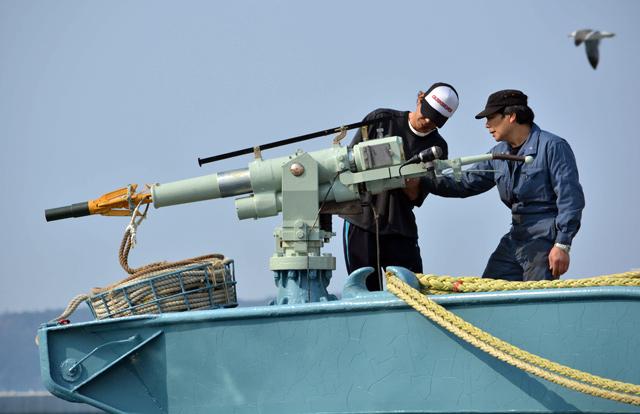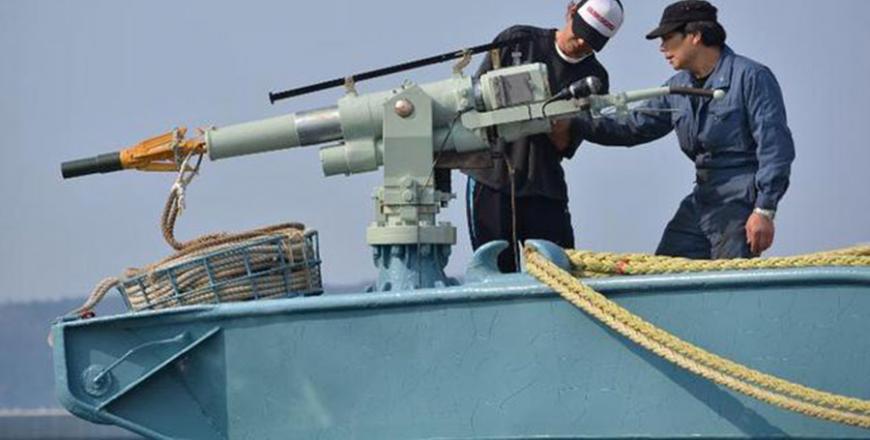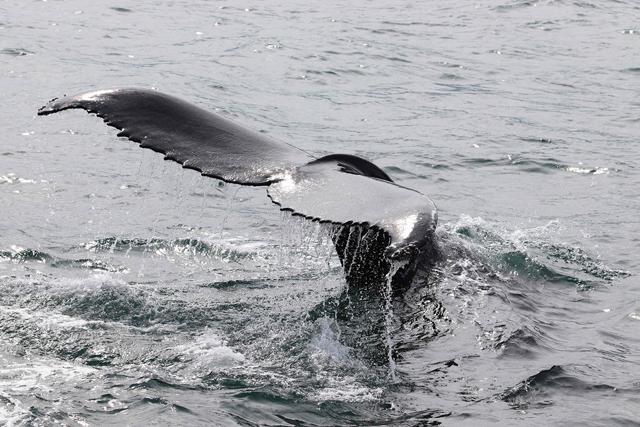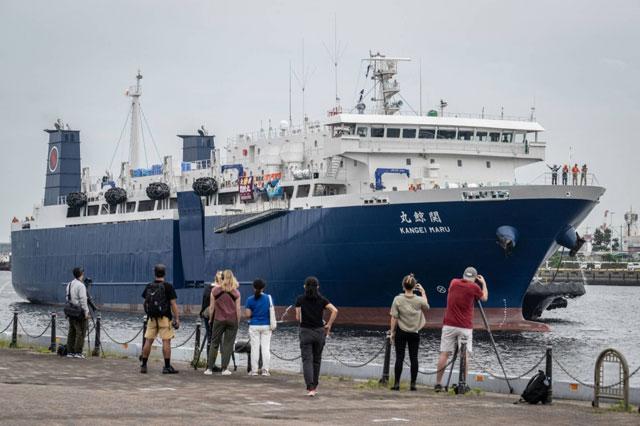You are here
Japan bolts whaling commission, but tensions may ease
By AFP - Dec 29,2018 - Last updated at Dec 29,2018

In this photo taken on April 26, 2014, crew of a whaling ship check a whaling gun or harpoon before departure at Ayukawa port in Ishinomaki. Japan has made good on years of threats by bolting the International Whaling Commission, but its decision may also offer a way out of tensions that looked inextricable (AFP file photo)
WASHINGTON — Japan has made good on years of threats by bolting the International Whaling Commission, but its decision may also offer a way out of tensions that looked inextricable.
Japan, which calls whaling part of its cultural heritage, said on Wednesday it would withdraw from the seven-decade-old commission which since 1986 has banned commercial killing of the ocean giants.
But while Japan vowed to forge ahead with full-fledged commercial hunts off its coast, it put a halt to its most provocative whaling — annual expeditions to the Antarctic, which use an IWC loophole that permits whaling for scientific research.
Australia and New Zealand have been outraged by Japan’s incursions into waters they consider a whale sanctuary and activists harassed the whalers in often dangerous chases.
Patrick Ramage, a veteran watcher of IWC negotiations, called the announcement an “elegantly Japanese solution” that looks on the surface like defiance but will likely mean a much smaller hunt.
“What this provides is a face-saving way out of high seas whaling. And it is difficult to see that as anything other than good news for whales, and the commission established to manage and conserve them,” said Ramage, programme director for marine conservation at the International Fund for Animal Welfare.
Ramage said that the IWC, where Japan will now have observer status, can focus on increasingly serious threats to whales such as climate change, plastic pollution, ship-strikes and accidental net entanglement from the soaring fishing industry.
“It will be a net positive to allow the commission and its member countries to move beyond what has been a disproportionate and warping debate on whaling,” he said.
Norway and Iceland also hunt whales but remain within the IWC, instead formally registering objections to the ban.
The Sea Shepherd Conservation Society, which opposes any killing of whales and attempted to stop Japan’s fleet forcibly in the Antarctic, declared victory over Tokyo’s announcement but vowed not to accept any whaling by the three countries.
Mounting obstacles
For Japan, which generally prides itself on its contributions to international organisations, whaling has been a rare space in which it confronts its usual Western allies, with Japanese officials at IWC meetings railing against what they see as cultural imperialism.
While whale meat is rarely eaten in modern Japan, whaling has become a matter of principle for the powerful fishing business and port cities such as Shimonoseki, the home base of conservative Prime Minister Shinzo Abe.
But Japan’s whalers also faced serious obstacles outside the IWC. The Nisshin Maru, the world’s only remaining whaler factory ship and flagship in the “scientific” expeditions, is 31 years old and set for replacement.
Japan — adamant that it has always followed the letter of the law — also in 2014 lost a lawsuit filed by Australia at the International Court of Justice, which rejected Tokyo’s argument that its whaling was for science, although the narrow ruling allowed Japan to reconstitute its programme.
And CITES, the global conference that governs wildlife trade to protect endangered species, in October reprimanded Japan for shipments of meat of sei whales, the main type it kills on the high seas.
Japan’s coastal whaling is expected to focus on minkes, the smallest of the great whales whose stocks are widely considered healthy.
Latest shift for IWC?
The Cambridge, England-based IWC was established after World War II to manage whaling, seeking to ensure meat for a hungry Japan and, less successfully, to contain the Soviet Union’s prolific slaughter of whales.
After the IWC voted for the moratorium, Japan sought to pack the commission with allies — often small developing countries with no whaling tradition — but has continuously failed to reach the two-third threshold it needed.
As one of the earliest results of international environmental diplomacy, the IWC has advocates who say it must be preserved.
Peter Stoett, a professor at the University of Ontario Institute of Technology who has written a book on the IWC, said Japan’s withdrawal marked a setback for the commission which will no longer have universal membership.
But he said Japan’s absence could reorient the IWC once again to focus on science and diplomacy to address climate change and other urgent threats to whales and other cetaceans.
“As dramatic as this is, the major threat to cetaceans today is not coming from harpoons,” Stoett said.
“The end of all whales could come, but that would be because the oceans are just too warm for the ecosystem support structure that they need,” he said.
Related Articles
When Japanese researchers said earlier this year that eating whale meat could help prevent dementia and memory loss, the news provoked snorts of derision — it couldn’t be real science, went the retort.
HUSAVIK, Iceland — Just off the northern coast of Iceland, scientists are collecting data from whales’ breath to find out if they get stress
STOCKHOLM — Police in Greenland arrested prominent anti-whaling environmentalist Paul Watson under an international warrant issued by Japan,














